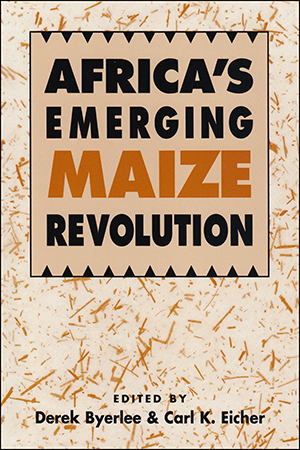
- 1997/306 pages
Africa's Emerging Maize Revolution
Although relatively new to Africa, maize has recently replaced cassava as the continent's most important food crop, and increased maize production has the potential of helping to reverse Africa's food crisis. This book presents the results of extensive field research on the maize economy in six African countries, as well as broader-based studies of maize research and extension (R&E), soil fertility, seed distribution, fertilizer, and marketing and processing.
The main finding of the research is that R&E and associated input and marketing interventions have, as intended, produced rapid increases in maize production. Nevertheless, the results tell only a qualified success story—crop yields are still low, yield gains are threatened by a loss of soil fertility, and many farmer–support services require government subsidies. The authors outline the technical, institutional, and policy reforms needed to significantly accelerate maize production in Africa.







